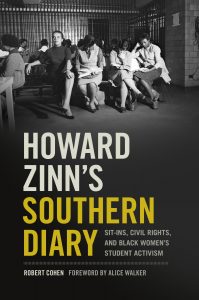 On February 11, 1963, at Emory University in Atlanta, Georgia, Howard Zinn debated Fulton Lewis III, a journalist and member of the House Un-American Activities Committee, on the question of “Shall the House Committee on Un-American Activities Be Abolished?”
On February 11, 1963, at Emory University in Atlanta, Georgia, Howard Zinn debated Fulton Lewis III, a journalist and member of the House Un-American Activities Committee, on the question of “Shall the House Committee on Un-American Activities Be Abolished?”
The opening remarks are provided in Howard Zinn’s Southern Diary: Sit-Ins, Civil Rights, and Black Women’s Student Activism. Author Robert Cohen notes,
Though this debate about HUAC may seem more a national rather than a southern or Spelman issue, focused on an anachronistic congressional committee left over from the Cold War/McCarthy era of the 1950s, HUAC was in fact very much alive in the 1960s — and was still impacting the lives and careers of radicals, ex-radicals, and liberals on campus, including at Spelman. In fact, shortly after his firing, Zinn noted that in the early 1960s a colleague of his at Spelman nearly lost his job because of his refusal to cooperate with HUAC.
Here are excerpts from Howard Zinn’s opening statement and commentary in the debate:
Opening remarks
I only have thirty minutes so I thought I would begin with the Stone Age. Mankind has gone through the age of stone and the age of bronze, and today we live in the age of irony (laughter). Probably in the twentieth century the ironies are more monumental than ever. But I am not going to pick one of these stupendous ironies nor one of the petty ones. Let’s call it a middle-level irony. And it goes something like this. We the American people do not want to live in a Communist state.
The reason for this is not so much that we object to a planned economy, although many of us do. Not so much that we object to socialized medicine, there’s some controversy about this, this may be a factor. Certainly not because we’re afraid that if we live in a Communist society Coca-Cola will be replaced by borscht (laughter) or that we have anything against the Bolshoi Ballet or vodka, that’s not it. We don’t want to live in a Communist society because we don’t want to live in a situation in which the government or some agency of government is supervising our ideas and our associations to make sure that we hold no idea, believe in no political ideology, which is contrary to the official dogma.
We don’t want to live in a Communist state because we don’t want any government agency inspecting what we say, what we think, the associations we have, the paintings we paint, the writings we write, the books we read, the meetings we go to, the organizations we join. We don’t want to be in a situation where people around us are watching us and may inform on what we say or where we go, or the petitions we sign. We don’t want to live in a situation where opposing the official credo may result in going to prison, where disagreeing with this governmental agency will send somebody to jail.
And so in order to avoid all this we set up a [House] Committee [on Un-American Activities]. And this committee in order to prevent us from experiencing this inspects what we read, looks at who we associate with, checks up on the things we write, the books we read, the associations we have, the meetings we go to, the wife that we married. It also employs paid informers to keep track of what people do, what they say, where they go. It also sends people to jail for disagreeing with the committee. Now the premise of this irony is that we don’t really mind if our freedoms are taken away from us so long as it’s done by Americans (laughter). And also that it is all right to take our freedoms away from us today because this will strengthen us to meet the trials of tomorrow.
The House Committee on Un-American Activities was founded in 1938. It had two predecessors, the Overman Committee of 1919 [and] the Fish Committee of 1930. They had roughly the same object. In 1938 the House Un-American Activities Committee was created as an ad hoc committee. The chairman, well I don’t think I’m being unfair when I say that the chairman, Martin Dies, was not selected from among the most brilliant members of the House. The chairman was Martin Dies of Texas; this became known as the Dies Committee.
And you all perhaps know, well it’s not necessary to say anything about the Dies committee. It saved our country (laughter). It investigated Brooklyn College, which everybody knows is the seat of subversion in this nation (laughter). It investigated the Federal Writers Project, and writers are among the most dangerous people in this country. It investigated the Farmer-Labor Party of Minnesota. And well, all you have to do is look on a map and see the strategic location of Minnesota. It is right next to Iowa (laughter). And not far away from Wisconsin, and then there’s the Schlitz Brewery Company (laughter) which is right near. If the Communists got control of the Schlitz Brewery company (laughter), well . . . .
This committee became a permanent committee in 1945. The man most responsible for making it permanent was another one of our great congressmen, John Rankin of Mississippi. As an example of Mr. Rankin’s incisive comments on Communism, of which he was one of the nation’s most assiduous students, July 18, 1945, on the floor of the House, John Rankin speaking: “These alien-minded Communistic enemies of Christianity and their stooges are trying to get control of the press of the country. Many of our great daily newspapers have now changed hands and gone over to them. They’re trying to take over the radio. Listen to their lying broadcasts in broken English” (laughter). It’s clear that the committee fulfilled its function. I listened to the radio yesterday for a while. I heard no broken English. All I heard were things like “I’m crazy about you, baby, cause you’re so sweet” or something like that. The radio has been cleared of Communist propaganda, it seems to me, very effectively (laughter).
Now since then the IQ of the committee, since those days, since the days of Rankin, has gone up. But the values remain the same. It’s important to take a look at the enabling resolution passed by Congress which gives the committee its legal power. It’s important to know this because this is the legal foundation upon which the committee operates. This is what the committee is supposed to be doing. And this resolution says that the committee is authorized to conduct investigations “into the extent, character, and objects of un-American propaganda activities in the United States.” And too, “the diffusion within the United States of subversive and un-American propaganda that attacks the principle of the form of government as guaranteed by our Constitution.” I want you to note that both requirements are that propaganda be investigated.
No one on the committee, incidentally, as far as I can see, has given a very satisfactory answer to the question of exactly what is un-American propaganda. What is American propaganda? What is subversive, what is un-subversive propaganda? Dies, in the good old days, said that if you didn’t believe in God this was an example of un-American thinking, and if you believed in a planned economy this was an example of un-American thinking. The most recent definition I’ve seen was given by the chairman Congressman [Francis E.] Walter in 1961 . . . (this was on [the] “Youth Wants to Know” television program), [who, in response to a] question from a young student, [said]: “Sir for our own information could you tell us just what is considered un-American by your committee?” Walter: “Well any activity that strikes at the basic concept of our republic.” That’s a good clean answer, isn’t it? (Laughter.)
“Any activity that strikes at the basic concept of our republic.” What is the basic concept of our republic? Well, I will offer my own answer. The basic concept of our republic, I think, is that no government agency has the right to say what is the basic concept of our republic because the principles of American democracy are changing things. They are hammered out on the anvil of experience. They are debated and redebated and they engage in [a] kind of dynamic process of reverberation of opinion and atmosphere of freedom. And they’re not subject to the kind of vague or ultraspecific definition which the House Un-American Activities Committee enjoys giving.
– – – –
The [House Un-American Activities Committee] is engaged in things which are not called for by its enabling resolution. The picture given by the Committee of one that just draws up plans for legislation dealing with sabotage and so on, it’s protecting our security, and all of this.
Why does a committee which is concerned with this, investigate teachers? I’d like to know how Lloyd Barenblatt teaching on the faculty of Vassar College is a military threat by way of sabotage, overthrow the government by force and violence, espionage, or anything like that to the United States.
I’d like to know how those 100 — I stand corrected. Did you say 101, 103, whatever it was — I’d like to know how those 100-odd teachers in San Francisco represent, in California, represent this kind of threat to the United States.
I’d like to know how Pete Seeger who is called before — ever hear of Pete Seeger? He’s a folk singer. He was called before the House on American Activities Committee and I would like to know in what way Pete Seeger is a threat to the national security of the United States.
This is what bothers me. If the committee confined itself to ironing out those little sophisticated frills on existing legislation connected with sabotage, espionage, and violent activity, that would be fine. But that would be a completely different kind of committee. That’s not the way this committee operates. Read through the hearings of this committee, it will say with all the niceties and with all the changes and all the improved procedures, it’s not a very nice committee. It treats friendly witnesses in a friendly way. I mean, let them talk much as they want. treats unfriendly witnesses in a different way. I wouldn’t say that there’s any real freedom of speech before the committee.
– – – –
My objections to the committee, in short, are not titling ones. They don’t have to deal with procedure. They really are not based on whether somebody has right of counsel, although that’s important. I think people should also be allowed cross examination of witnesses before the committee, and, but this isn’t important. There’s something fundamentally wrong with the committee. And that is the committee is set up, and the sin derives from its birth, the committee is set up to investigate propaganda activities. And in a free nation, no committee should be set up which is concerned with speech, or writing, or thought or association. This is a job, if anybody is interested in countering propaganda, this is a job for private organizations. And as a matter of fact, in a democracy, this is what happens: private individuals and organizations like the young Americans for Freedom, have a perfect right to counter all the propaganda that they come across. And in the free marketplace of opinion, the various propaganda is supposed to collide and out of it, the truth is suppose to come and this is a democracy, not the government setting itself up in the business of deciding what is false propaganda, what is true propaganda, what kind of propaganda should be allowed, what kind of propaganda should not be allowed.
Find a full transcript along with a three-part recording of the 150-minute debate at HowardZinn.org.

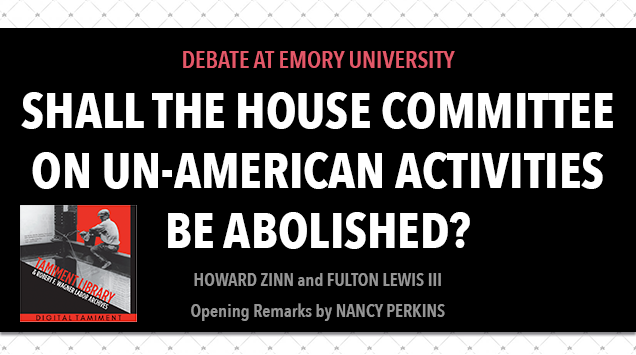
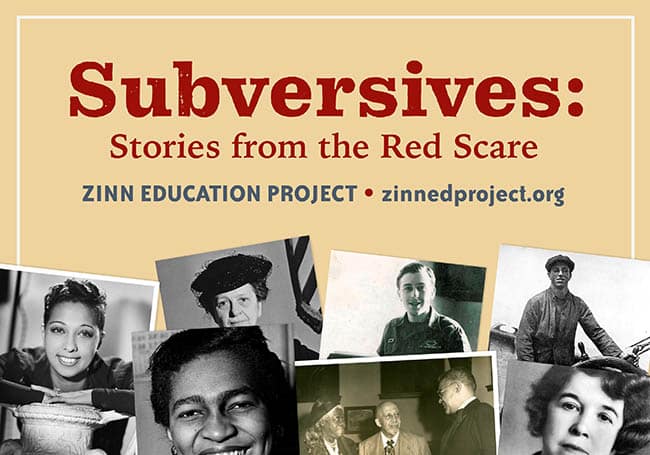
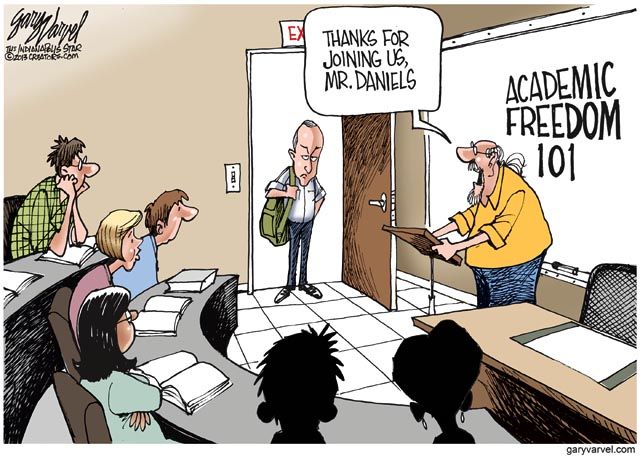
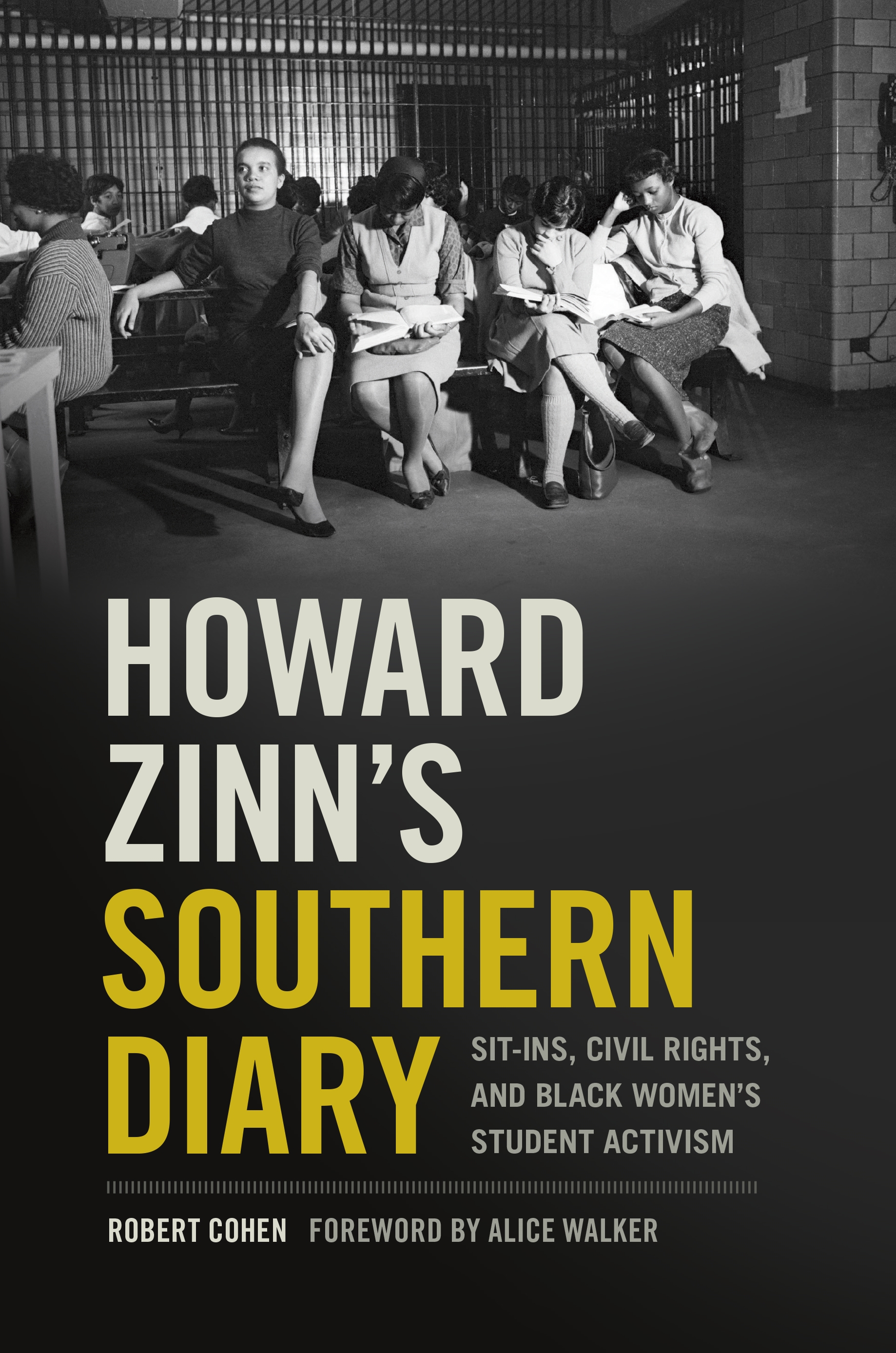
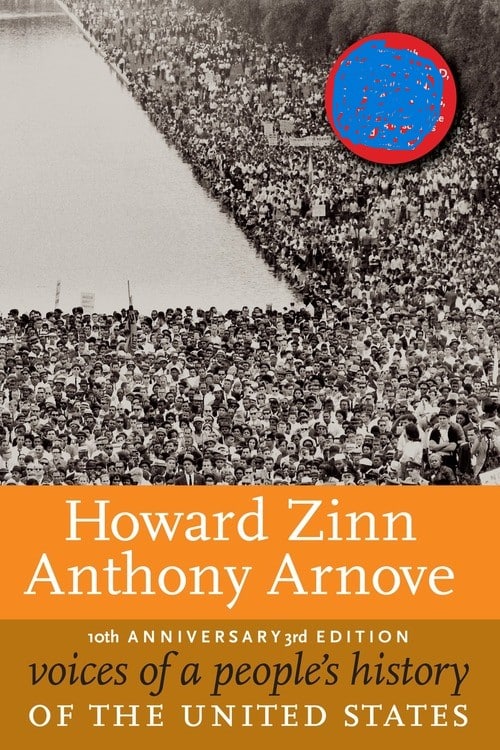
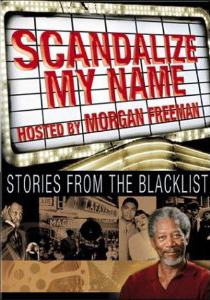
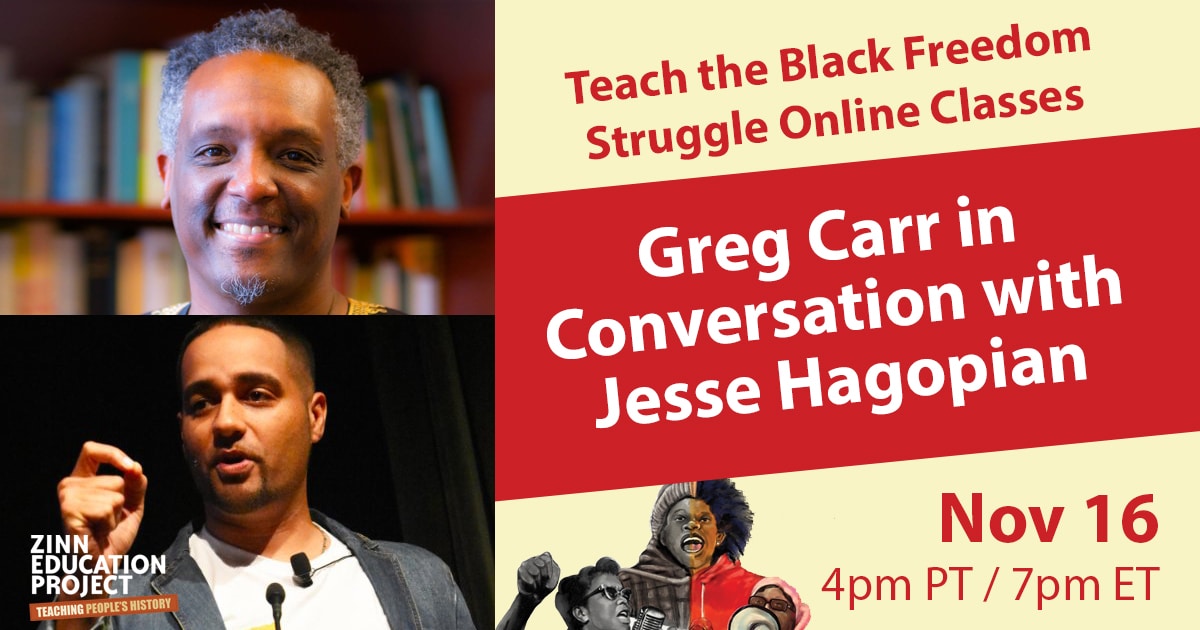
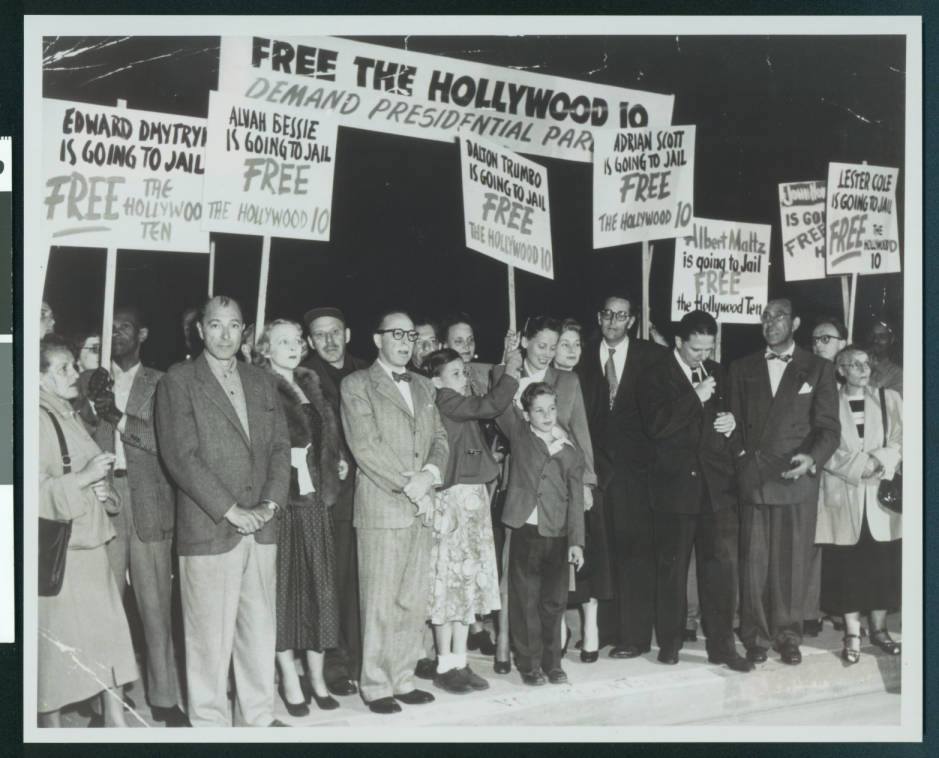
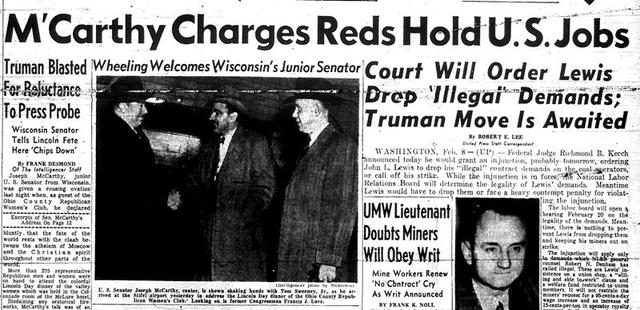

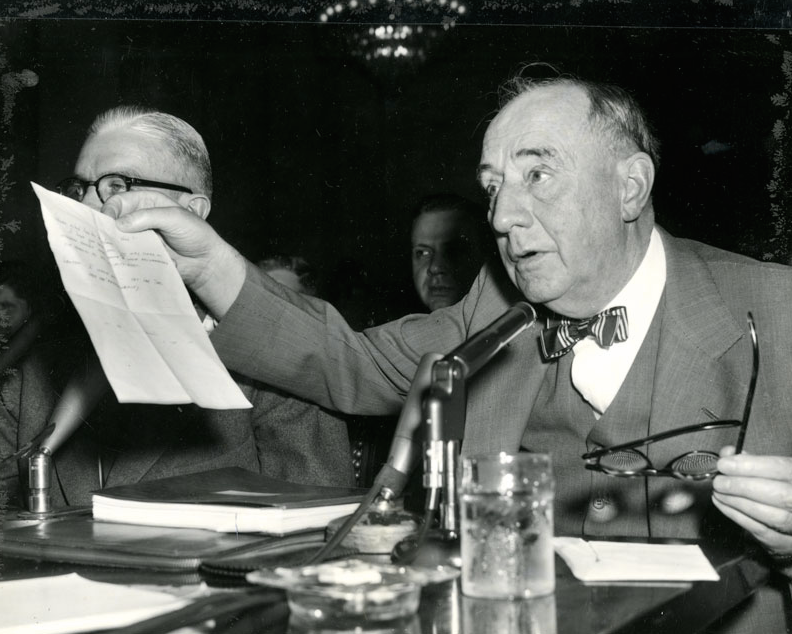
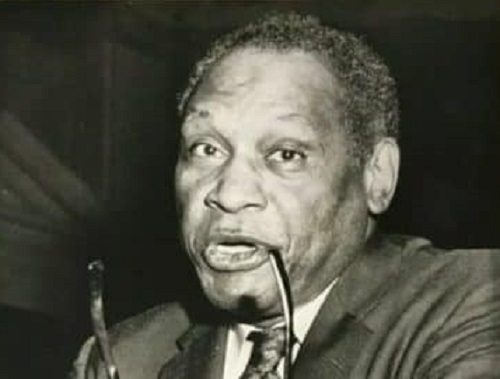





Twitter
Google plus
LinkedIn